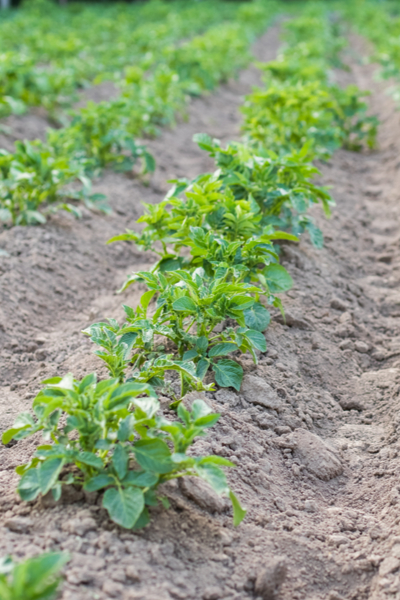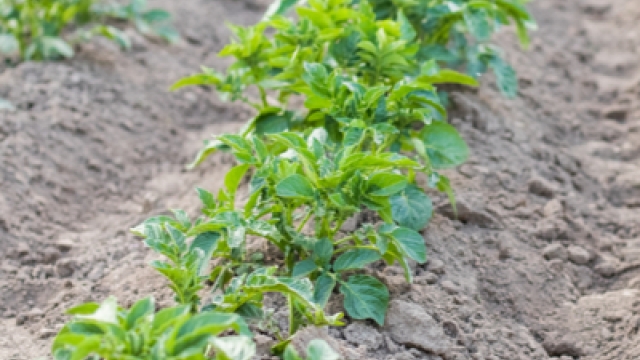Potato planting is a popular gardening practice that allows us to enjoy the delicious and versatile tubers that potatoes offer. But did you know that certain plants can actually enhance the growth and flavor of your potato crop? These plants, known as potato companion plants, can act as beneficial allies, promoting healthy growth, deterring pests, and improving soil conditions. In this article, we will explore ten perfect potato companion plants that you can incorporate into your garden for a bountiful potato harvest.
One company that specializes in providing high-quality organic soils, including those suitable for potato planting, is Kellogg Garden. With their range of Organics and G&B Organics soils, you can ensure that your potatoes and their companion plants thrive in nutrient-rich environments. So, let’s dive into the world of potato companion plants and discover how you can maximize the potential of your potato garden.
Benefits of Companion Planting for Potatoes
Companion planting is a practice that involves growing different plants together that benefit one another in some way. When it comes to planting potatoes, companion plants can play a crucial role in enhancing the growth and overall health of the potato plants. By strategically selecting companion plants, you can create a thriving and balanced garden ecosystem that promotes a bountiful potato harvest.
-
Natural Pest Control: One of the main benefits of companion planting for potatoes is natural pest control. Certain plants, such as marigolds and mint, have natural pest-repellent properties that can help protect potato plants from common pests like aphids, Colorado potato beetles, and nematodes. By interplanting these companion plants with your potatoes, you can reduce the risk of pest infestations and decrease the need for chemical pesticides.
-
Improved Soil Health: Companion plants can also contribute to the improvement of soil health in your potato garden. Plants like legumes (such as peas and beans) and clover are known as nitrogen-fixing plants. They have the ability to capture nitrogen from the atmosphere and convert it into a form that can be easily absorbed by other plants. Incorporating these companion plants into your potato garden can enrich the soil with nitrogen, which is essential for the healthy growth of potato plants.
-
Weed Suppression: Weeds can compete with potato plants for nutrients, sunlight, and water, hindering their growth and productivity. However, by planting companion plants like squash or pumpkins, you can create a natural mulch that helps suppress weeds. These plants have large leaves that shade the soil, preventing weed growth and reducing the need for manual weeding or herbicides. Additionally, the dense foliage of squash and pumpkins acts as a living mulch, conserving soil moisture and protecting the potato plants’ delicate roots.
By harnessing the benefits of companion planting, you can optimize your potato garden’s productivity and reduce the reliance on synthetic fertilizers and pesticides. Consider incorporating these potato companion plants into your garden to create a thriving ecosystem that supports the growth and yields of your potato plants.
Top 10 Potato Companion Plants
-
Marigolds: Marigolds are excellent companions for potato plants as they deter pests such as nematodes and beetles. Their vibrant flowers also add a pop of color to your garden.
-
Horseradish: Planting horseradish near your potato plants can help repel the Colorado potato beetle, a common pest that can damage potato crops. Additionally, horseradish leaves can be used to make a natural insecticide spray.
-
Beans: Growing beans alongside potato plants is a win-win situation. Beans fix nitrogen in the soil, which benefits the nutrient needs of potatoes. In return, the sprawling potato plants provide shade and support for the vertical growth of beans.
-
Nasturtiums: Nasturtiums not only add beauty to your garden with their vibrant flowers but also act as a natural pest deterrent. These colorful companions deter aphids, whiteflies, and other harmful insects that could harm your potato plants.
-
Basil: Planting basil near your potato plants can help to repel pests and attract beneficial insects such as bees and wasps. Additionally, the aromatic leaves of basil can be used in cooking, adding both flavor and health benefits to your meals.
-
Chives: Chives are great companions for potatoes as they deter pests such as aphids and the Colorado potato beetle. These flavorful herbs also make a tasty addition to many potato dishes.
-
Corn: Growing corn alongside potatoes can provide a natural trellis for the sprawling potato plants. This efficient use of space allows you to maximize your garden’s potential by growing two crops in one area.
-
Garlic: Garlic is known for its natural pest-repellent properties. Planting garlic near your potato plants can help deter pests like aphids, mites, and potato beetles, reducing the risk of damage to your potato crop.
-
Spinach: Growing spinach alongside your potato plants can help to prevent weeds from taking over your garden. The leafy greens of spinach provide ground cover, reducing the space and sunlight available for weed growth.
-
Calendula: Calendula, also known as pot marigold, makes a beautiful companion for potato plants. These bright yellow or orange flowers attract beneficial insects and can deter harmful pests like nematodes.
Remember, companion planting is all about finding the perfect combinations that benefit your potato plants while promoting overall garden health.
Choosing the Right Soil for Your Potato Garden
When it comes to cultivating a thriving potato garden, selecting the right soil is crucial. The quality of your soil can directly impact the growth and yield of your potatoes. To ensure a bountiful harvest, consider these factors when choosing the soil for your potato garden.

- Kellogg Garden Organics Mulch
Nutrient-Rich Soil: Potatoes are nutrient-hungry plants, so it’s essential to provide them with soil that is rich in nutrients. Opt for a soil mix that is specifically formulated for vegetable gardening or potatoes. The Kellogg Garden and G&B Organics soils are excellent options, known for their organic composition and nutrient content.
-
Well-Draining Soil: Potatoes thrive in well-draining soil that allows excess water to escape easily. Excessive moisture can lead to root rot and other diseases that can harm your potato plants. Look for soil that has a good balance of moisture retention and drainage, allowing water to move through the soil without becoming waterlogged.
-
Loamy Soil Texture: Potatoes prefer loamy soil, which is a balanced combination of sand, silt, and clay. Loam holds moisture while still maintaining adequate drainage, providing an ideal growing environment for potatoes. Avoid heavy clay soils that can become compacted and hinder root development.
Remember, the success of your potato garden starts with the soil you choose. By selecting a nutrient-rich, well-draining, and loamy soil, you’ll provide your potatoes with the best possible conditions for a flourishing harvest.

